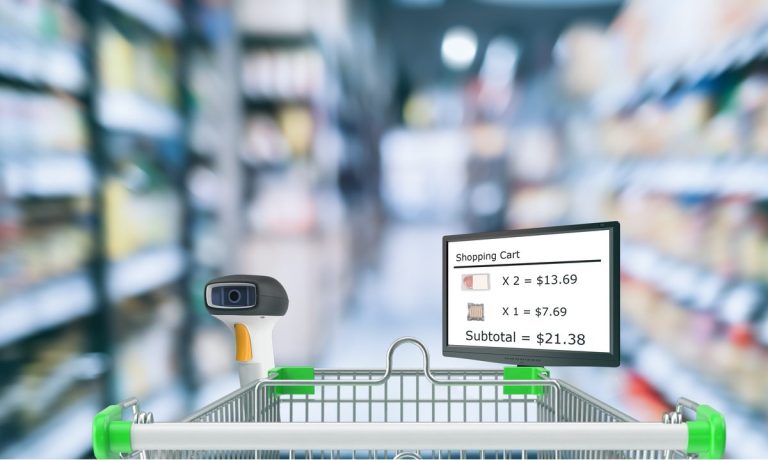
Frictionless checkout is no longer the near-exclusive purview of Amazon. While some major brands are trying out cashierless payment options that allow consumers to pick items off shelves and walk out of the store with them, others are opting for the smart cart route. For instance, Albertsons Companies, the Boise, Idaho-based grocery giant that encompasses more than 20 popular supermarket chains across 34 states, is trying out smart carts powered by Seattle-based artificial intelligence (AI) startup Veeve, according to a report from local business news outlet BoiseDev.
“There are fundamental differences between big retailers — Amazon is a technology company that happens to be doing business in [grocery],” Veeve CEO Shariq Siddiqui told the publication. “Albertsons is really really good at buying and selling and inventory management, but they are not technology companies. Retailers know to survive this onslaught, they need to become a tech player. It’s hard for a 100-year-old company to transform itself into an AI company. We’re not a retailer. We’re a pure technology platform.”
The grocery company is trying out the startup’s shopping cart technology, which allows consumers to scan items and check out as they move through the store, at a Safeway location in Pleasanton, California and at an Albertsons in Eagle, Idaho.
The Context
While the most frictionless checkout experiences available to shoppers are “Just Walk Out” and its imitators, smart carts allow retailers to offer some of the benefits — cutting out the wait in line and checkout and allowing consumers to control the experience — without the cost of outfitting entire stores with computer vision and weight-sensing technology. Low-friction self-service options such as these allow grocers not only to provide a more convenient experience to consumers but also to reduce the labor cost of checkout, a huge advantage in today’s challenging labor market.
In October, leading grocery technology company Instacart acquired Caper Ai, the company powering Albertsons competitor Kroger’s “KroGo” smart shopping cart test. Canada’s No. 2 grocery chain Sobeys began testing Caper’s carts back in 2019. In 2020, Amazon introduced its Dash Cart smart shopping cart at company-owned grocery stores.
Additionally, smart carts also allow grocers to gather a trove of useful data about how consumers move through stores and interact with products.
“This is what the next generation of the in-store journey should look like,” Raz Golan, CEO and co-founder of grocery store technology company Shopic, told PYMNTS in an interview. “All these data points are ones that we just couldn’t measure very well until today, and it opens a whole new world of data analytics.”
Read more: Smart Carts Bring Data Analytics Into Grocery Aisles
By the Numbers
Smart carts maximize the benefits consumers already seek out in self-service options. According to data from PYMNTS’ study Today’s Self-Service Shopping Journey: The New Retail Expectation, created in collaboration with Toshiba, which surveyed more than 2,000 U.S. adults about their checkout behaviors, 33% of consumers opt for self-checkout at the grocery store. Additionally, 68% of those taking advantage of the option report that they do so because it is faster than traditional checkout, and 51% indicate that they choose these options because they do not want to wait in line.
See also: Consumers Want Self-Service Checkout Options But Rarely Get to Use Them